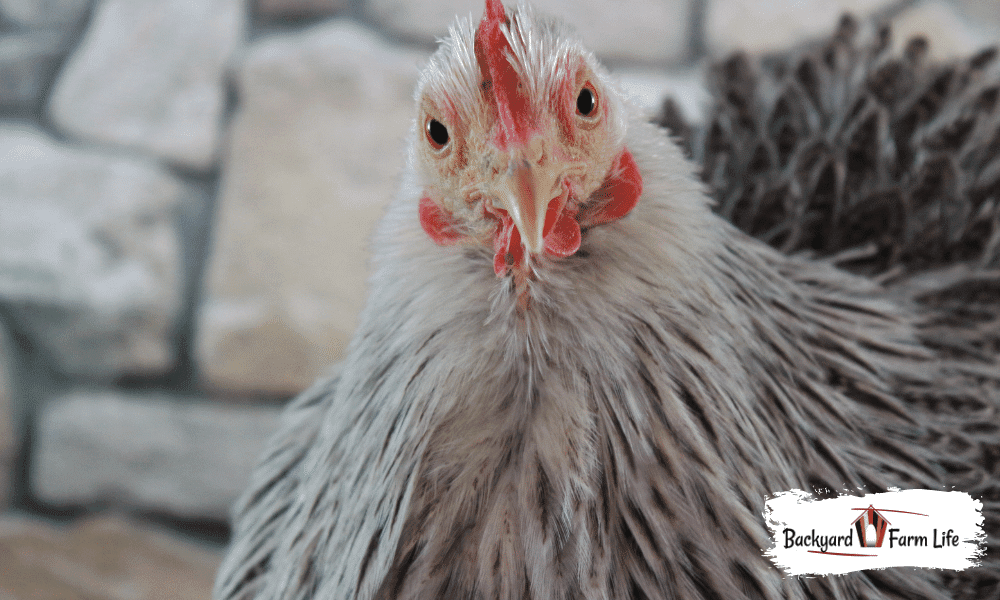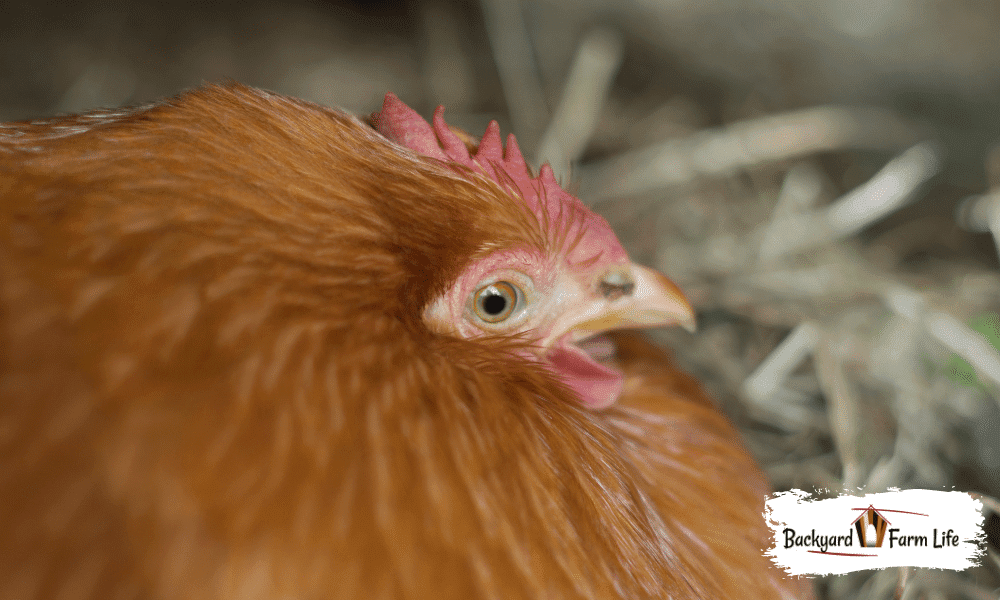We all know that animals have a way of communicating, but chickens are on a whole new level. Really, being able to create over 24 distinct sounds with hundreds of meanings, come on.
Sure, sometimes they aren’t as articulate and will seemingly squawk for no reason, but it is fascinating nonetheless.
One of the more interesting sounds chickens make is that distinct “purring” or “trilling” sound.
A lot of chicken owners aren’t used to these sounds, so they often think it means their chicken is hurt or in distress. But, as it turns out it can mean several things depending on the context!
Here’s exactly why chickens purr or make that “trilling” sound, what it actually means to your chickens, and how to react accordingly!
Can Chickens Purr (Trilling)
You don’t often refer to a chicken as “purring”, but it does make that same, constant pitched noise sometimes. Usually, when they are sitting on eggs or are content.
This is actually referred to as trilling, which can be determined by a repetitive, low, and constant verbalization, usually in only one or two tones.
Chickens do have the ability to make this purring sound, and any chicken owner that’s heard it can attest to that – it really does sound like your chickens are purring!
Many animals are able to purr, and purring is usually used to communicate either pleasure or distress.
It’s understandable then, that your chickens may purr or trill when you’ve picked them up or are spending time with them — to show you they share the affection. Or on the other hand, they may purr or trill when they are broody on their eggs — telling you to stay away!
Why Do Chickens Purr Or Trill?
There’s no mistaking it once you’ve heard it. Chickens do in fact purr, or “trill”.
But, this isn’t as straightforward as you’d think. It doesn’t just mean they are happy either, it’s a bit more complex than that.
In fact, chickens will purr or trill when they are alarming their flock of a threat, to communicate happiness and contentment, or as a warning to you, particularly if they are broody!
Some people have even said it’s instinctual that a mother hen purrs to her eggs and chicks to help them distinguish her voice from the rest of the flock! It’s also meant to reassure them and make them feel safe.
Ultimately, chickens don’t trill while they are actually laying eggs, only when they are brooding over them!
Alarm

You may have heard your chickens trill loudly if you’ve accidentally startled them before, or if you’ve been near them at the same time as a potential predator.
This is because chickens have several distinct sounds they can make to alert their flock to danger. One of these, is by a high pitched and repetitive “trill”, almost as if they sound like they’re shocked.
This shrieking that the chicken lets out is classified as “trilling” but doesn’t sound like a traditional purr. If you hear your chicken purring or trilling at a lower volume and tone, then it’s likely not trying to alarm its flock
Contentment
Ahh, the most interesting reason a chicken will purr, and even one of the strangest.
Yes, a chicken will indeed make a very true purring sound when they are relaxed and content. Unless I’m going mad, it’s almost a direct response to affection. It’s super sweet!
You don’t believe me? Check out this video from Manning River Farm. It’s literally proof that chickens purr when they’re content and comfortable!
This low, mellow, warble of a purr can be heard whenever your chickens are truly content. Besides a response to your affection, chickens will also purr like this when they getting settling down for the night, or are just relaxing with you!
Broody/Warning You

Normally, chickens don’t get angry, upset, or sad when you take their eggs. But, when a hen goes broody, they get a powerful instinct to relentlessly sit on and protect their eggs.
There have been several times my Silkies go broody, and when they go broody they let me know by trilling!
Strict rules, no taking their eggs!
But really, chickens will often purr or trill if they are feeling broody and sitting on their eggs, almost as a way to warn you not to get too close!
If you do get too close to a broody chicken it’s likely you’ll get a peck or “bite”.
Do Baby Chicks Purr?
When baby chicks are young and are drifting off to a content sleep it’s not uncommon to hear very subtle, but distinct “purring” sounds.
Although this isn’t exactly like a cat’s purr, you will instantly recognize it as purring when you hear it!
This generally just means your chicks are content and falling asleep, and often happens when baby chicks have been hand-reared and imprinted on humans. Breathing repeatedly out of their beaks makes this subtle purr.
In Conclusion
When you see a chicken purr, you can pretty well guess what it means simply by looking at their body language.
If they do it when you startle them, it’s an alarm. If they do it while you’re comforting them, they purr for contentment.
If they’re sitting on their eggs, have gone broody, and start trilling when you get close to them, perhaps stay away and let them cool off!
So, it’s a natural part of a chicken’s language, and depending on the context can have very different, but fascinating meanings!
